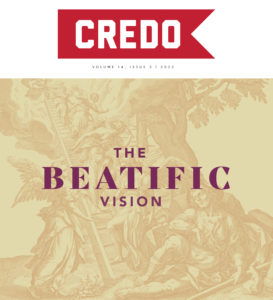Michael Allen of RTS Orlando has compiled a unique series of lectures, essays, and other written works by John Webster with the goal of charting, in a brief but dense single volume, the development of his decorated career as a theologian and introducing his work to new audiences. The T &T Clark Reader in John Webster opens with an editor’s introduction, selected works of John Webster across ten chapters, and a concluding list of his entire corpus. Allen’s purpose in assembling this collection is to distill Webster’s keen interest in what he called “theological theology” and the application of this principle to other topics, be they metaphysics, epistemology or ethics, all under the immanent and economic aspect of the triune God of Scripture.
&T Clark Reader in John Webster opens with an editor’s introduction, selected works of John Webster across ten chapters, and a concluding list of his entire corpus. Allen’s purpose in assembling this collection is to distill Webster’s keen interest in what he called “theological theology” and the application of this principle to other topics, be they metaphysics, epistemology or ethics, all under the immanent and economic aspect of the triune God of Scripture.
While Webster’s principles in this endeavour remained the same his conversation partners seem to have shifted across his career. Allen notes that Eberhard Jungel and Karl Barth were his chief named companions and interlocutors in the earliest stages of his career. However, Webster’s deference to the tradition of the moral community within which Scripture is read and understood across time led to a gradual shift in his attention from contemporary theologians and towards the inclusion of those from antiquity. Webster saw enormous value in the centuries of contemplation that had been passed on to the faithful of the present and, based on his care and diligence as a publishing academic, seems to have felt a responsibility to steward that legacy and facilitate its ongoing transmission however he could.
Allen begins his guided tour through Webster with two chapters that explain his method and opinion on the task of theology. In ‘Theological Theology’, his inaugural lecture as the Lady Margaret Professor of Divinity at Oxford, Webster called for, “the ‘re-regionalization’ of intellectual life” (36). As Webster surveyed the academic landscape his observation was that education and research, including in contemporary theology, had been informed by the anthropological assumptions of Wissenschaft whereby universal human reason, denuded of tradition or authority, was the final court of appeal. Webster contrasted these modernist claims with those of Bildung, whereby, “to be schooled is to be educated into reflective appropriation (emphasis mine) of the roles and practices of a specific moral and intellectual world” (27). Webster believed that wissenschaft, with its expectation of assimilation to a value-neutral paradigm with authority transferred to the inquirer, had led to “the alienation of theology from its own habits of thought” (29). His diagnosis was that theology had been swept into a current of de novo enquiry rather than learning through deferential citation from within a Christian world of meaning, “shaped by biblical, credal and doxological texts and by the practices which both carry and are carried by those texts” (31).Webster described this interplay between the redeemed reason and Scripture and the goal of fellowship through a cognitive principle and an ontological principle of theology. Click To Tweet
Allen follows this opening chapter with ‘Biblical Reasoning’ which Webster defined as, “the redeemed intellect’s reflective apprehension of God’s gospel address through the embassy of Scripture, enabled and corrected by God’s presence, and having fellowship with him as its end” (59). Webster described this interplay between the redeemed reason and Scripture and the goal of fellowship through a cognitive principle and an ontological principle of theology. Cognitively, “Scripture is the place to which theology is directed to find its subject matter and norm,” and ontologically, the source is God Himself (59). Therefore, Scripture is a function of God and the means by which the redeemed intellect apprehends His voice.
In placing ‘Biblical Reasoning’ after ‘Theological Theology’ Allen’s goal is to hammer the methodological point home that theology qua theology ought to be defined by the God who reveals Himself in Scripture rather than by neighbouring disciplines such as literature, history, or philosophy. This is dependent upon seeing Scripture not as an inert deposit of data but as, “an instrument through which divine speech evokes the unselfish, loving and obedient tracing of the text’s movement” (60). Biblical reasoning, then, is an ascetical, self-denying spiritual discipline (61). This chapter culminates in a parting shot at Nietzsche’s legacy within theology. Webster remarked that, “Christian theology cannot remain content with the contemporary commonplace that reason is not much more than a play of power – a commonplace as lazy as it is hopeless. Oriented by and to the divine Word in the testimonies of the prophets and apostles, reason is a sphere of grace, a sign of the overcoming of the disorder of sin” (62). If Scripture were no more than human poetics open to the investigation of reason understood in the light (or darkness) of wissenschaft it certainly could be an instrument weaponized for domination. Except the redeemed intellect, per Webster, is a sphere of grace and “the divine Word quickens reason to knowledge and love of God” (62). The sheer gratuity of Revelation from without, and human surrender unto it, releases the redeemed creature from the curse of genealogical hopelessness so common in contemporary discourse.
Chapters three and four, ‘The Immensity and Ubiquity of God’ and ‘The Place of Christology in Systematic Theology’, contain Webster’s treatment of divine omnipresence, immensity, and the incarnation all flowing from the context of the triune God ad intra as the defining source of His works in creation and redemption. In a similar fashion chapter six, ‘It was the Will of the Lord to Bruise Him’, is an analysis of soteriology from a trinitarian vantage point, “The bedrock of soteriology is the doctrine of the Trinity. The perfect life of the Holy Trinity is the all encompassing and first reality from whose completeness all else derives” (126).
In chapter five, ‘Non Ex Aequo: God’s relation to Creatures’, Allen exhibits Webster’s exploration of the asymmetric and non-reciprocal relation between the Creator and the creature in light of God’s perfections and our limitations. Having underlined the otherness of God and the idea of participation Webster calls, once more, on ascetical virtue. He urged those considering the Christian teaching on creation, “to recover the posture of creatures, the dependence and gratitude of derivation and the repudiation of self-subsistence.” In his footnote to Webster’s appeal Allen comments that this “ethical conclusion is not unrelated to the metaphysical principles. Creaturely dependence will not be perceived or embraced apart from dependently receiving God’s re-orientation of our self-perception” (118).
Chapters seven, ‘Eschatology and Anthropology’ and eight, ‘Christ, Church and Reconciliation’ are the works most explicitly centered on ethics. In the former, Webster addressed postmodernism and its penchant for dissolving teleology and eschatology and, in so doing, the weight of moral claims. Webster contrasted Foucault’s self-creating-self with the “Christian account of the drama of human nature, origin and destiny, a drama presided over by the triune God who will bring it to consummation at the appearing of the Lord Jesus” (158). The ascetical theme of acknowledging one’s creatureliness repeats itself here. In the latter, and perhaps the most polemical of these selected works, Webster expounded upon 2 Corinthians 5 and Ephesians 2 and explained that the reconciling work of Christ “indicates the existence (not simply the potentiality) of ‘the one new man’.” The upshot is that “the Spirit’s power generates those human acts which seek to demonstrate conformity between achieved divine reconciliation and patterns of human life’ (174) and this action is “hopeful and unanxious if it knows itself to be action which is in conformity with how the world is coram deo” (175). It is not, then, that the church is to bring-about, construct or mediate reconciliation but rather be a witness to the current reality of reconciliation in Christ.It is not, then, that the church is to bring-about, construct or mediate reconciliation but rather be a witness to the current reality of reconciliation in Christ. Click To Tweet
Allen concludes his selections with, ‘Evangelical Freedom’ and, ‘Intellectual Patience’. Prior to offering his account of evangelical freedom Webster felt the need to clear the ground of the usual misconceptions including self-determination and autonomy. Thereafter Webster explained that, in light of the gospel, “freedom is the restoration of my identity in company with my fellows” and that “to understand and practice freedom we need to become different people. It is the office of the Spirit to make us such” (194). In the final chapter, ‘Intellectual Patience”, the readers are extolled by Webster to remember their creaturely standing before God and understand that intellectual faculties alone are insufficient to the task of theology particularly insofar as pragmatic moderns are tempted to hurry on to the next thing rather than endure contemplation. Intellectual virtues such as patience, distinct from intellectual faculties, are a necessary ingredient for the pursuit of theological truth. In explication of how the intellectual life is part of the good life, Webster concluded anthropologically, “to be human is in every element of our being to be referred to a source of life; and that reference is not dark heteronomy but the deeply happy reality that, though we might not have been, by divine generosity we are and live” (210). Awareness of creaturely contingency and directedness under the aspect of a gracious Creator produces the humility necessary for patiently contemplating the faith’s mysteries.
As a former student and friend of Webster, Allen was well placed to edit this volume. While this compilation is intended as an introduction to Webster the prospective reader should know that the work is hardly introductory level reading. Webster wrote at the highest levels of the academy and seamlessly connects dots between topics in theology that might seem distant and esoteric to the uninitiated. He or she might do well to heed Webster’s warning and encouragement in his concluding chapter, “patience liberates creatures from the ideal of intellectual adequacy: we know in part, but we may still know well” (207).


